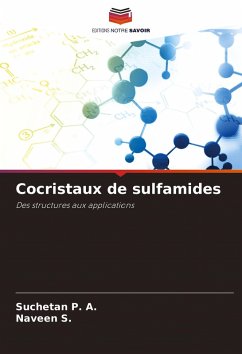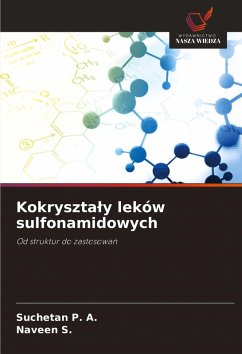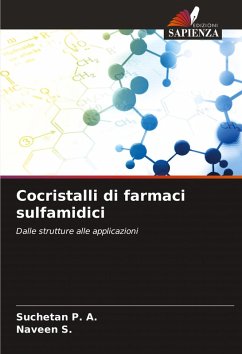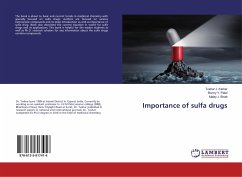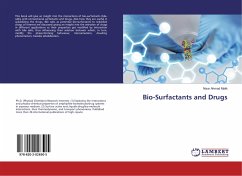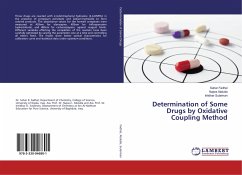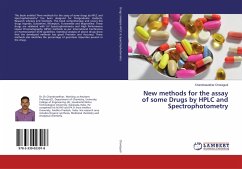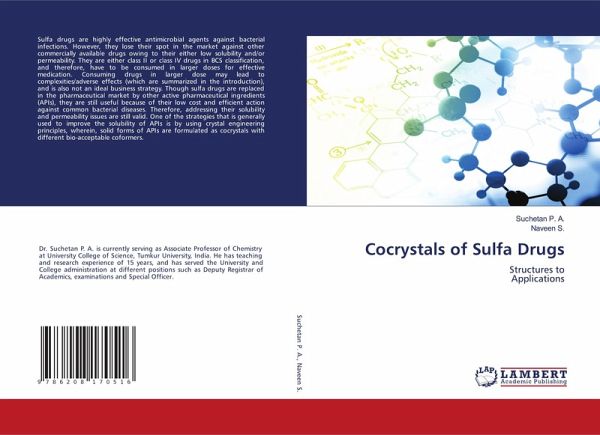
Cocrystals of Sulfa Drugs
Structures toApplications
Versandkostenfrei!
Versandfertig in 6-10 Tagen
40,99 €
inkl. MwSt.

PAYBACK Punkte
20 °P sammeln!
Sulfa drugs are highly effective antimicrobial agents against bacterial infections. However, they lose their spot in the market against other commercially available drugs owing to their either low solubility and/or permeability. They are either class II or class IV drugs in BCS classification, and therefore, have to be consumed in larger doses for effective medication. Consuming drugs in larger dose may lead to complexities/adverse effects (which are summarized in the introduction), and is also not an ideal business strategy. Though sulfa drugs are replaced in the pharmaceutical market by othe...
Sulfa drugs are highly effective antimicrobial agents against bacterial infections. However, they lose their spot in the market against other commercially available drugs owing to their either low solubility and/or permeability. They are either class II or class IV drugs in BCS classification, and therefore, have to be consumed in larger doses for effective medication. Consuming drugs in larger dose may lead to complexities/adverse effects (which are summarized in the introduction), and is also not an ideal business strategy. Though sulfa drugs are replaced in the pharmaceutical market by other active pharmaceutical ingredients (APIs), they are still useful because of their low cost and efficient action against common bacterial diseases. Therefore, addressing their solubility and permeability issues are still valid. One of the strategies that is generally used to improve the solubility of APIs is by using crystal engineering principles, wherein, solid forms of APIs are formulatedas cocrystals with different bio-acceptable coformers.






